Girls Can't Be What They Can't See: Why I Went All-In on My Business
And how my community helped me survive the pandemic.
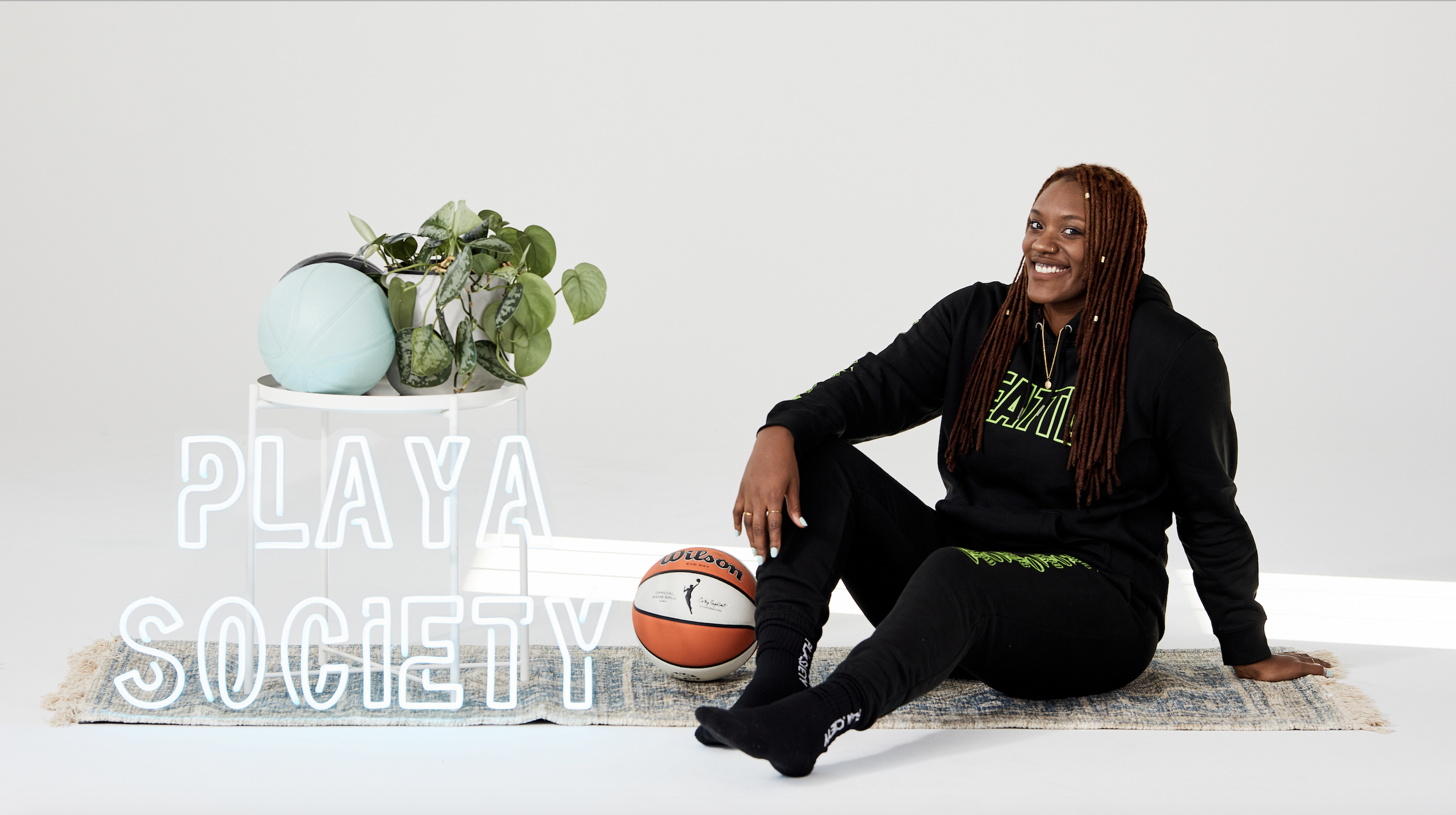
As a six-foot, one-inch teenager, I was always being told the same thing: “You should play basketball.” The thing was, I wanted nothing to do with sports. I was introverted and insecure, trying to figure out where I belonged. A self-proclaimed “art nerd” with an interest in fashion design, the basketball court was the last place I thought I wanted to be.
Then, when I was 15, I went to my first women’s college basketball game, and everything changed. Here were young women who looked like me—and they were fearless, bold, and free.
In that moment, I realized that I wanted to be an athlete.
After working hard to make up for lost time, I earned a Division I scholarship to Fairleigh Dickinson University in New Jersey and then, after college, started playing professional basketball overseas. My pro career ended early, as injuries and a heart condition caught up with me. But, basketball gave me something that would last forever: It empowered me and helped me discover my purpose.
That discovery started with realizing that I hadn’t been exposed to positive images of female athletes as a kid, then wondering, What if I’d seen Lisa Leslie in the media as often as I’d seen Michael Jordan? Representation was the key to introducing me to the game, and it could’ve come a lot sooner than sophomore year of high school.
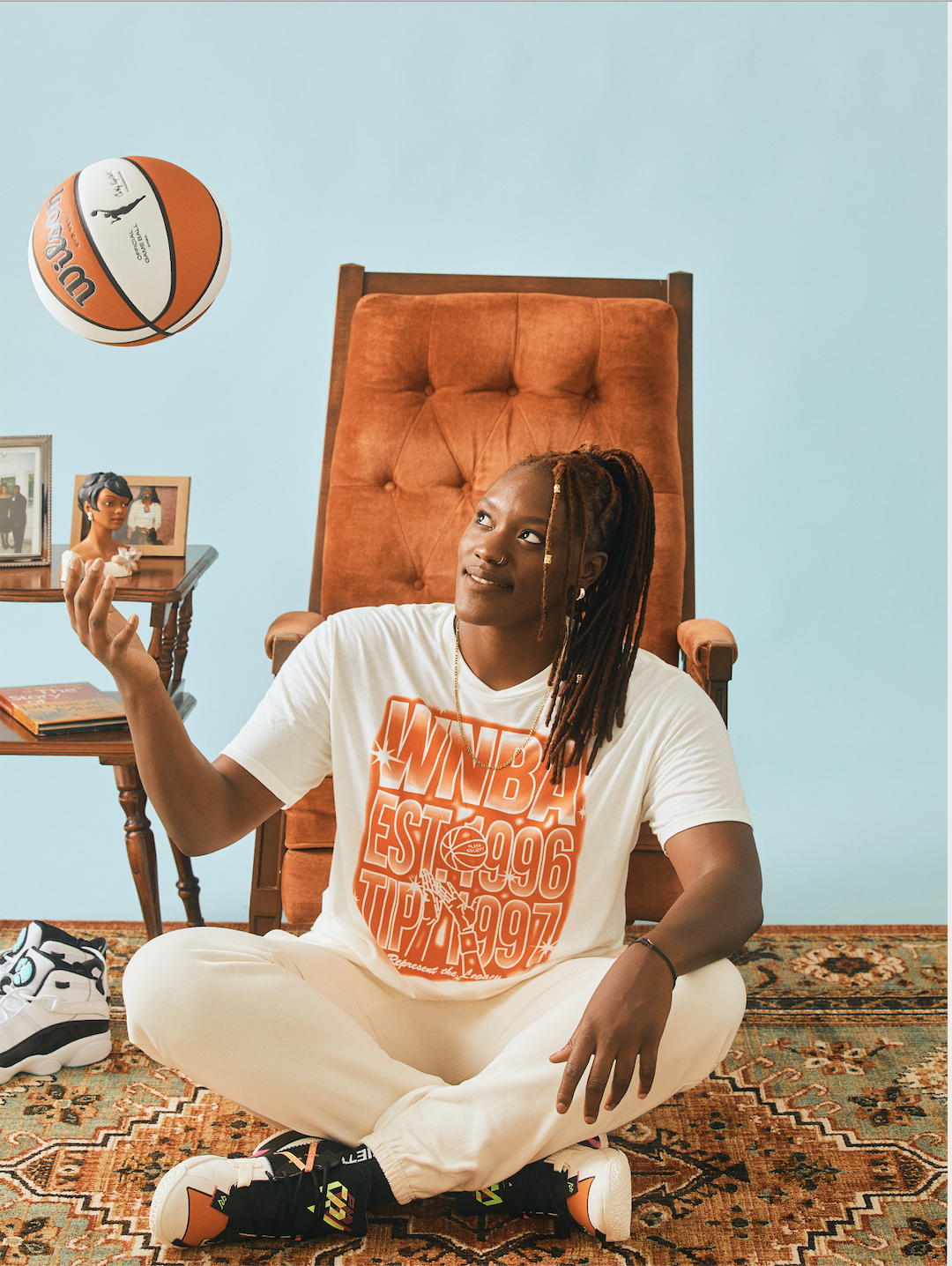
Esther Wallace turned her side hustle into a full-on business at the start of the pandemic.
So I started developing apparel that would help girls see what I hadn’t. Eventually, it evolved into a brand called Playa Society. My company, which helped me rediscover my passion for fashion design, was my side-hustle for three years. I designed a popular “Female Athlete” t-shirt while working a 9-to-5 marketing job in Boston; in 2019, I juggled that job with an entrepreneurship program at Babson College. Somehow, I found a way to do all this while also shipping around 300 orders a month.
Stay In The Know
Get exclusive access to fashion and beauty trends, hot-off-the-press celebrity news, and more.
During those early years, all I could think about was running my small business full-time. Imagine what I could achieve if I could invest more time? But a familiar theme held me back: The entrepreneurs that received exposure didn’t look like me, and their stories didn’t sound like mine. As confident as success on the court had made me, part of me still felt like I didn’t belong.
Then, in the fall of 2019 I met a phenomenal woman at a marketing conference who, after hearing my story, grabbed my phone, opened my calendar, and created a reminder for me to make the leap to full-time entrepreneurship by January 2020. After much anticipation, I gave my 9-to-5 boss a couple months' notice.
My last day at work was scheduled for March 30, 2020.
I finished my business program that month and won the final pitch contest with a $5,000 grand prize. While celebrating with friends at a bar afterwards, I noticed that the NBA game playing on TV showed an empty arena. The NBA season was cancelled, and lockdowns rolled out across the U.S. a few days later, just as my journey in full-time entrepreneurship began.
The Playa Society community helped pull me through the pandemic, while also reminding me that I could be the representation that I had needed to see in business.
In addition to supply-chain problems and economic uncertainty, my biggest challenge during this time was the fact that more than a third of my business came from sports teams, which weren’t competing, or in-person sales at tournaments, which weren’t happening.
Scary? Yes. But I wasn’t going to let these road blocks deter me. I doubled down on digital marketing and social media, and focused on building the Playa Society community. There wasn’t a whole lot else I could do at the time.
It was the right decision. As I put more time into my business, I saw an immediate impact on sales. My expanding digital community rallied behind me in ways I couldn’t even imagine; as a result, sales doubled that summer, despite the pandemic. I also felt a heightened obligation to step-up from behind the scenes and celebrate my role as a Black-owned business. I designed the Athletes Against Injustice t-shirt, which thousands of athletes and teams began to wear. The Playa Society community helped pull me through the pandemic, while also reminding me that I could be the representation that I had needed to see in business. Now as Playa Society moves forward, those themes are our foundation: Community and representation drive our vision for the future.
More than ever, I’m convinced that there’s no limit to what we can achieve when small businesses and their communities support each other. The mission of my company is to change the culture of women’s sports, and by doing so, to empower Black women and my community. But I get as much support from my customers as they do from me.
This is especially true right now, as many small business owners continue to face new difficulties brought on by the pandemic. To do your holiday shopping with a small business that truly speaks to you—whether you’ve always made this a priority or have been encouraged by initiatives like American Express’s Small Business Saturday—can change the life of an entrepreneur, like it has done for me. Because when you support small businesses, you are doing more than buying a good or service. You are investing in your community, helping to create local jobs, and helping to sustain the organizations that make your neighborhood unique.
Especially for small businesses like mine that are owned by Black women, who navigate our own unique challenges, every act of support makes a direct impact. Anytime a single customer tells me she loves a product she’s purchased, or relates to my brand message, it serves as the momentum that keeps Playa Society going. So much of entrepreneurship, like excellence in sports, is about working together to reach a common goal.
What Small Business Saturday Means to Entrepreneurs
78% of small business owners say that holiday shopping will impact their ability to stay open in 2022.
More than half of small business owners are worried about having enough inventory or labor to survive this holiday season.
Shopping small can add $695 billion to the U.S. economy.
Source: American Express Shop Small Impact Survey
-
 Princess Anne's Unexpected Suggestion About Mike Tindall's Nose
Princess Anne's Unexpected Suggestion About Mike Tindall's Nose"Princess Anne asked me if I'd have the surgery."
By Amy Mackelden Published
-
 Queen Elizabeth's "Disapproving" Royal Wedding Comment
Queen Elizabeth's "Disapproving" Royal Wedding CommentShe reportedly had lots of nice things to say, too.
By Amy Mackelden Published
-
 Palace Employees "Tried" to Get King Charles to "Slow Down"
Palace Employees "Tried" to Get King Charles to "Slow Down""Now he wants to do more and more and more. That's the problem."
By Amy Mackelden Published
-
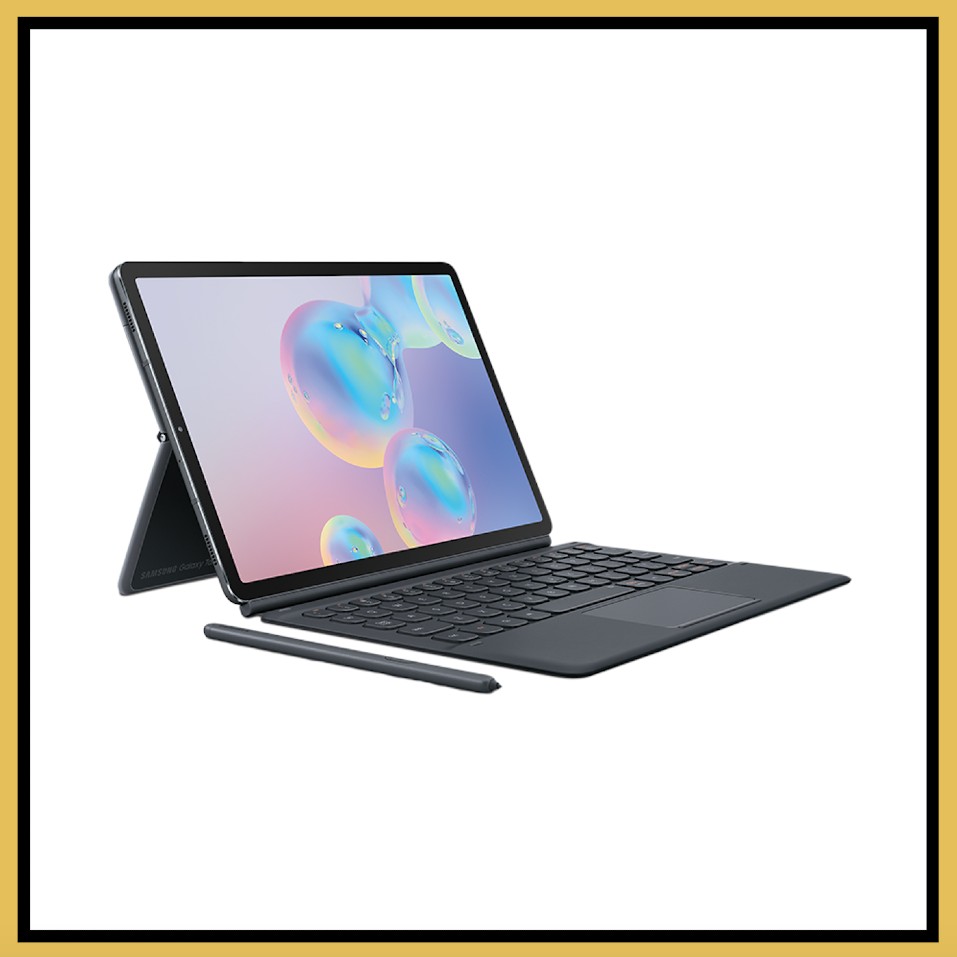 7 Brilliant Gifts for Your New College Grad
7 Brilliant Gifts for Your New College GradSmart picks that will make their adulting future look pretty bright.
By Lauren Ingram Published
-
 ADAY’s Co-founders on Learning to Spend Money to Make Money
ADAY’s Co-founders on Learning to Spend Money to Make MoneyNina Faulhaber and Meg He have a new store, a new office, and a new collection—and they’re just getting started.
By Hilary George-Parkin Published
-
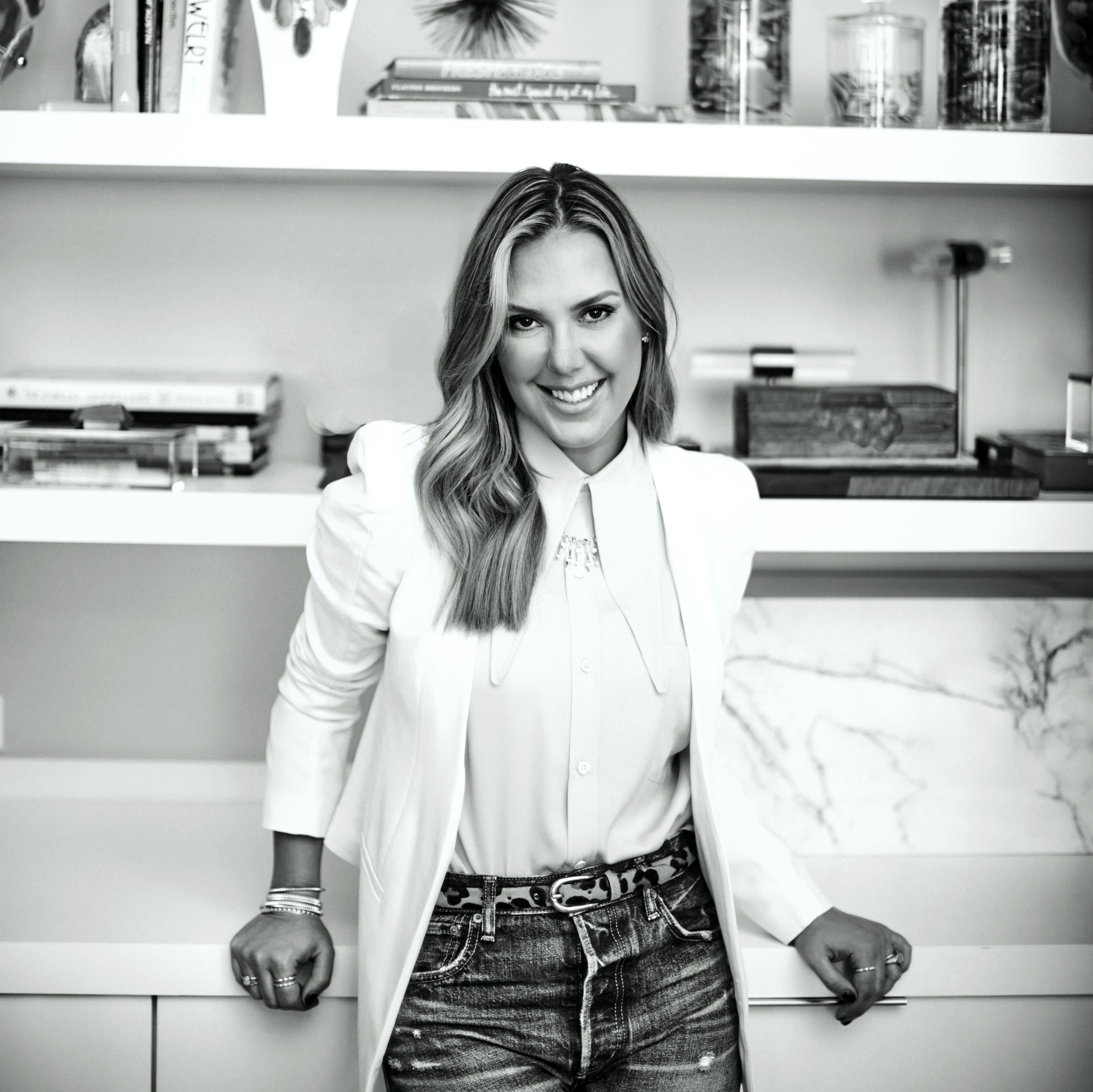 Kendra Scott, Jewelry Entrepreneur Extraordinaire, on How She Built a Billion-Dollar Business
Kendra Scott, Jewelry Entrepreneur Extraordinaire, on How She Built a Billion-Dollar Business"Focus on what lights a fire inside of you."
By Colleen Leahey McKeegan Published
-
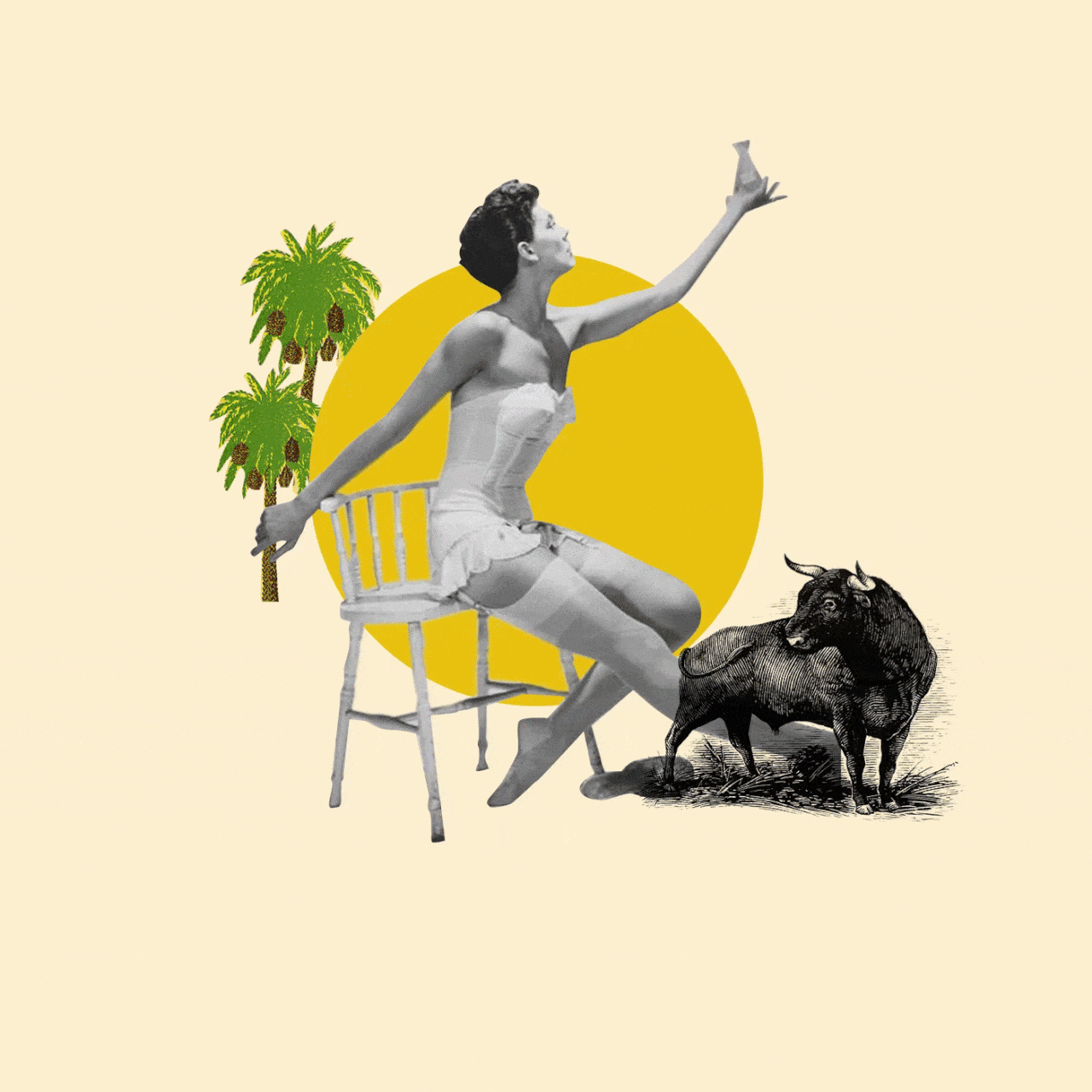 Why This Model Left the Glitzy World of Fashion for the Gritty Life of Bullfighting
Why This Model Left the Glitzy World of Fashion for the Gritty Life of BullfightingThere are many kinds of multihyphenates in Hollywood: actress-singer, director-producer. In the 1950s Bette Ford turned heads and raised eyebrows when she became a model-actress-bullfighter.
By Fortunato Salazar Published
-
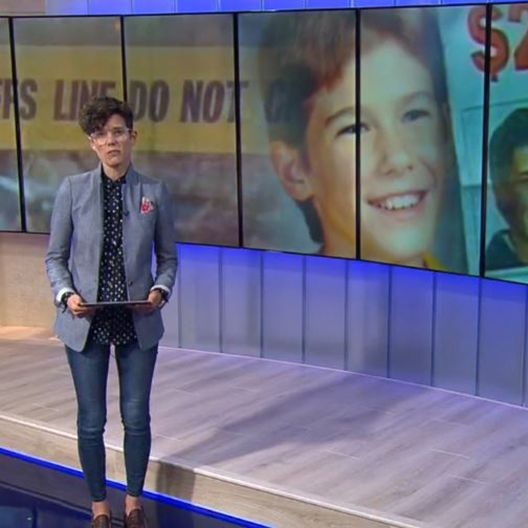 This News Anchor Was Shamed for Wearing Skinny Jeans on Air
This News Anchor Was Shamed for Wearing Skinny Jeans on Air"You wrote about clothes in the darkest moment of Minnesota news history."
By Megan Friedman Published
-
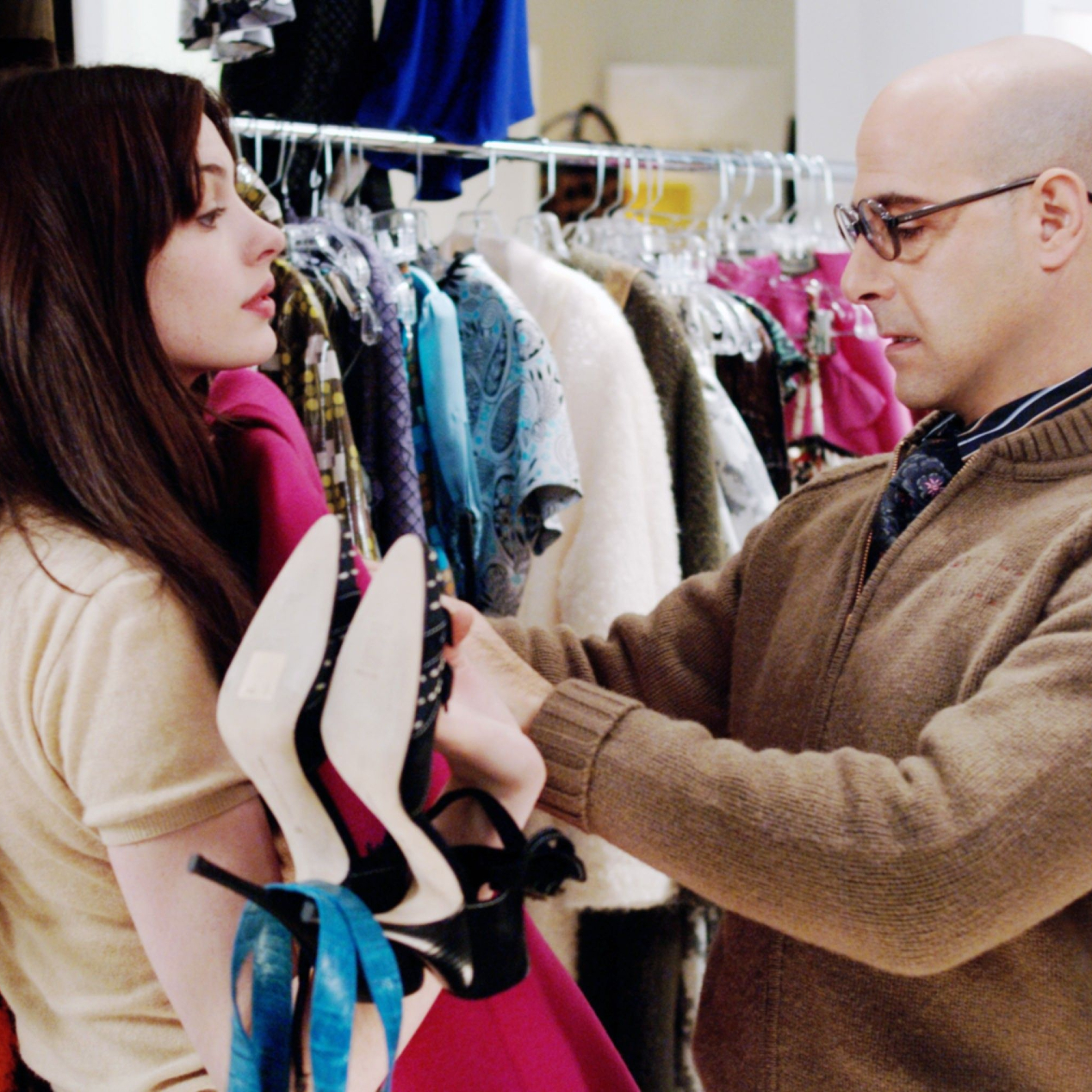 What Happened When I Hired a Professional Image Consultant
What Happened When I Hired a Professional Image ConsultantAnd had her give me advice in front of thousands of live viewers (eep).
By Chelsea Peng Published
-
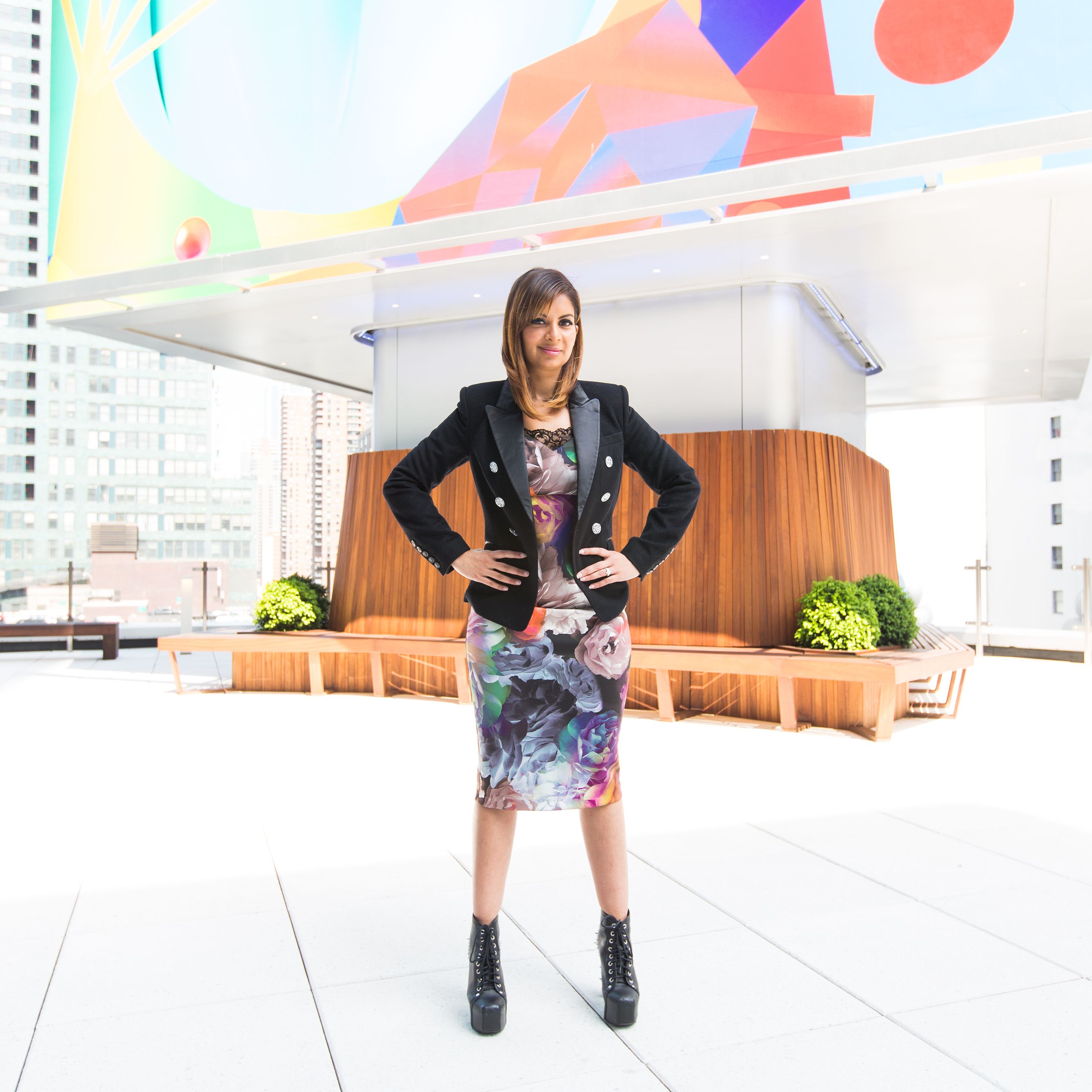 My Job in One Outfit: The Microsoft Program Leader Who Writes Books and Designed Her Own Jacket
My Job in One Outfit: The Microsoft Program Leader Who Writes Books and Designed Her Own JacketCan you say "polymath" again?
By Chelsea Peng Published
-
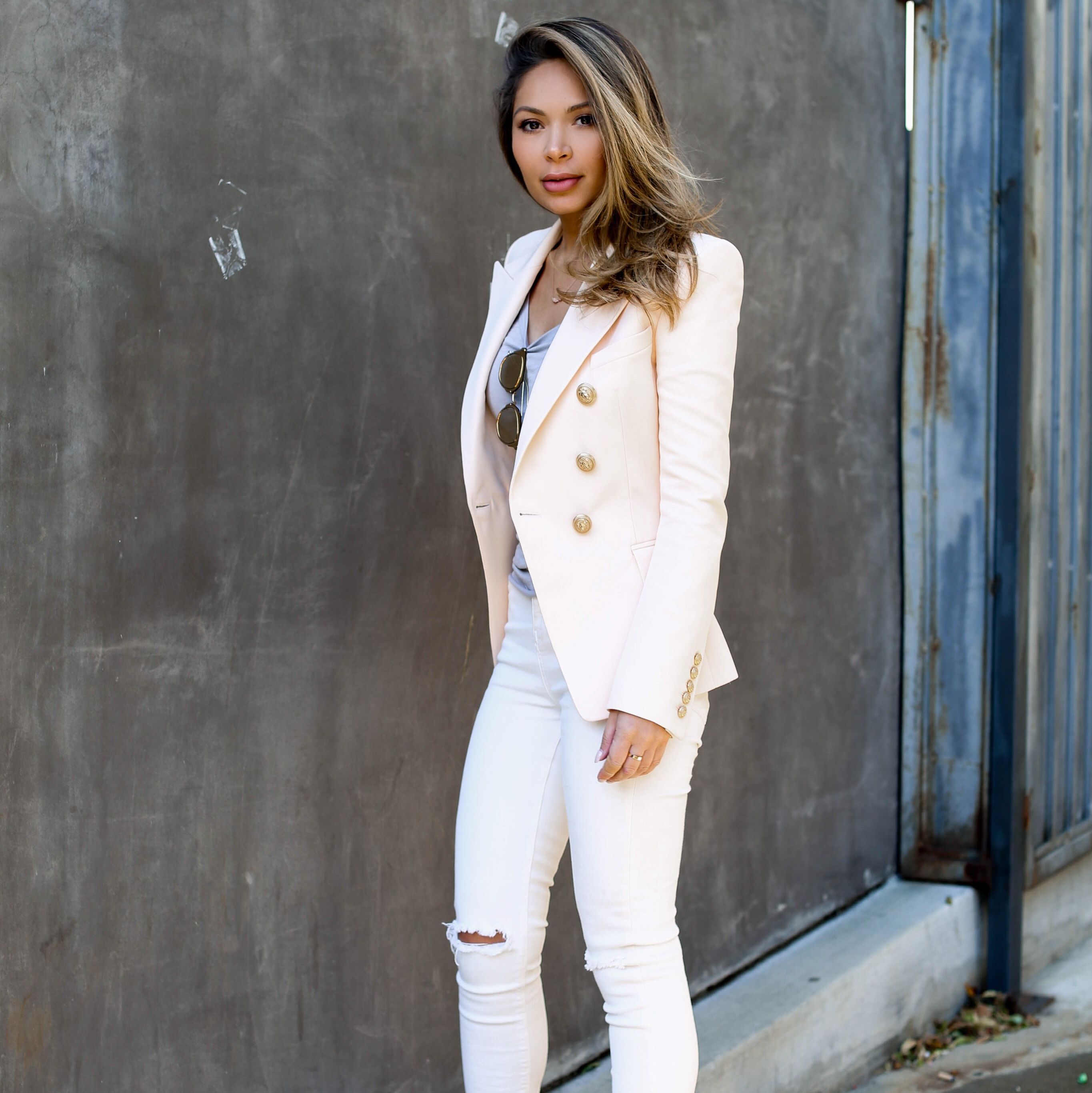 Marianna Hewitt's Journey from High School Outsider to Beauty Boss
Marianna Hewitt's Journey from High School Outsider to Beauty BossBecoming an influencer takes 💪, but having the chance to inspire young women is #worththewrinkle.
By Mehera Bonner Published